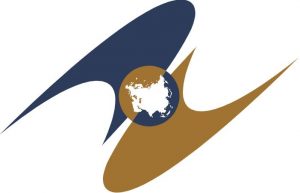It’s not quite clear that Uzbek officials understand the observer status that Tashkent has said it would pursue within the Eurasian Economic Union (EAEU). In the past two weeks, Prime Minister Abdulla Aripov and a senior senator spoke about the supposed benefits the country would receive after acceding to the union as an observer. This indicated either a genuine lack of understanding of the rights and limitations of EAEU observers or a more purposeful effort to create internal pressure for full accession to the EAEU by promising absent benefits.
On June 1, Aripov met with the residents of the Uzbek enclave of Sokh — 80,000 people located in territory surrounded by Kyrgyzstan — following a conflict on May 31 over a spring between the citizens of both countries. While answering questions from locals in an attempt to calm the tense situation, he erroneously stated that Uzbekistan’s incoming observer status in the EAEU will reopen the border checkpoint between the enclave and Kyrgyzstan to allow free passage to the main portion of Uzbekistan that is 80 km from the enclave. “[O]bserver status means that the country will have all rights. First and foremost, we raised with Kyrgyzstan the issue of opening the Sokh-Rishton road within a short period of time,” he was reported to have said.
The checkpoint and road Aripov referred was closed by Bishkek in August 2019, five days after it was opened with great fanfare. Kyrgyzstan pointed to its obligation to the EAEU’s veterinary and phytosanitary requirements as the reason for the closure.
On May 25, Ravshanbek Alimov, the head of the Senate Committee on Foreign Relations and Foreign Economic Reforms, said that the EAEU will open up a number of opportunities for Uzbek foreign trade, specifically in transportation that will be eased for Uzbekistan and enable the further development of transportation infrastructure in the country. “Joining the Eurasian Economic Union as an observer will open up new and wider opportunities for Uzbekistan’s foreign trade… Access to and conditions for transport communications will be easier for Uzbekistan… Cooperation with the Eurasian Economic Union creates objective opportunities … for the development of transport and communication infrastructure in Uzbekistan itself.”
In both cases, the officials are vastly overselling what observer status buys Uzbekistan. Observer status limits participants to siting in on open meetings of the EAEU at various levels, if invited. An observer state can also request documents that are not confidential and be in contact with various EAEU commissions. But no provision gives an observer state the right to uninhibited border passage, as promised by the prime minister, nor transportation preferences as the senate official suggested. In fact, observer states have to obey a vaguely worded limitation that can be invoked by members whenever wished. According to the stipulation, an observer state should refrain from any activities that can harm the interests of the EAEU and its member states, but no specifics are offered.
These recent statements from officials indicate poor comprehension of the opportunities and limitation of an EAEU observer; they’ve confused observer status with the benefits of full membership. Such blunders indicate how unprepared officials are for changes in policy direction. Uzbekistan had appeared set on full membership, but changed trajectory in a short period of time. A lack of understanding and miscommunication about the realities of observer status have generated false promises, which in turn will spark additional pressure on Tashkent to just move toward full membership: it’s the only path to deliver on the promises made.































